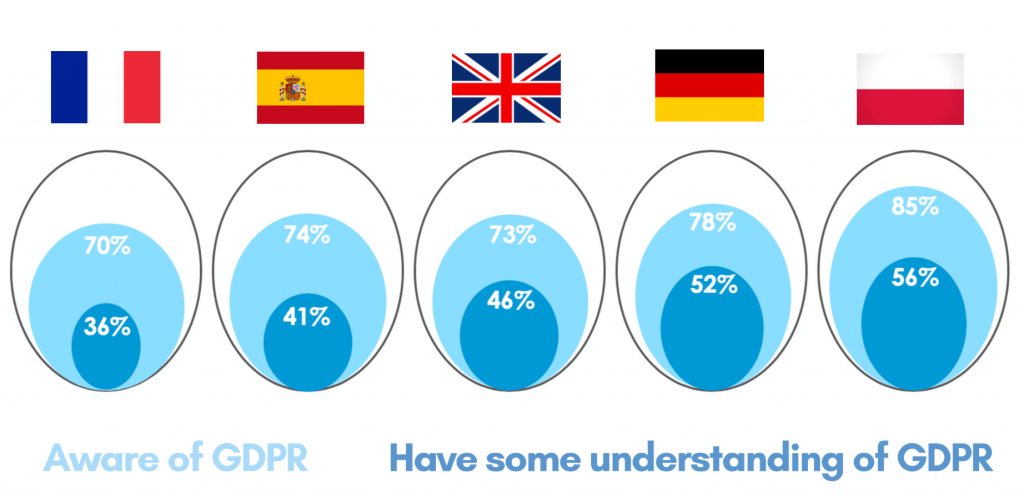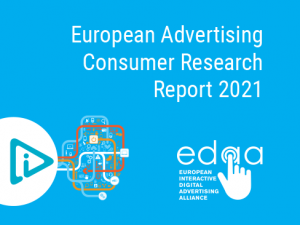Brussels, 18 September 2019 – EDAA is proud to publish the results of its latest groundbreaking consumer research on Perceptions and attitudes towards digital advertising post-GDPR.
This consumer research was conducted in March 2019 in France, Germany, Poland, Spain & the UK to explore consumer attitudes and perceptions towards online advertising and determine how these may have changed since the introduction of GDPR. The research results are informing EDAA’s assessment of shifts in consumer perspectives as it looks to further develop the industry’s self-regulatory programme for the benefit of consumers and industry alike.
Key findings
The research infographic can be viewed and downloaded here. The full research slides can be downloaded here.
- Improving consumer awareness and understanding of online data usage and addressing misconceptions increase positive thinking towards online advertising
- Improving consumer trust in how their data is used helps perceptions and encourages openness from consumers
- 40% of respondents agree they feel more knowledgeable since GDPR about the way in which information about them is collected and used online
- Higher levels of knowledge of GDPR tend to coincide with higher levels of knowledge about online data, comfort sharing data and comfort with online behavioural advertising (OBA)

- Providing consumers with increased transparency over their online data is business-critical, and EDAA can help improve this further
- Despite its discreet positioning, 1 in 3 consumers have used the AdChoices Icon
- Understanding of online behavioural advertising (OBA) increases when using the AdChoices icon and youronlinechoices.eu
Download the infographic here.
Background
The introduction of GDPR in May 2018 marked a significant shift in the landscape for data-driven advertising and has contributed to increased awareness of online data usage amongst consumers.
The use of data and personalised advertising is crucial for advertisers to reach interested audiences, yet also helps to maintain consumer access to online content and services at little to no cost, whilst upholding a diverse and pluralistic media ecosystem.
Existing research shows there is potentially greater openness to Online Behavioural Advertising (OBA): where transparency is available, consumers are often more pragmatic about the use of their data and acknowledge the value exchange (i.e. tradeoff between viewing advertising to access content).
EDAA’s pan-European, industry-wide Self-Regulatory Programme strives to provide greater accountability and transparency to consumers. This important and timely research serves as a strong consumer evidence base, as the programme continues to lead efforts to improve education and transparency, whilst being ever mindful of the consumer experience.
Research methodology
The consumer research was conducted by MTM as an online survey exploring behaviours and perceptions amongst a robust, representative audience of internet users. It was conducted between 11 and 18 March 2019 on a sample of 5014 respondents equally based in the UK, France, Germany, Spain and Poland. Quotas were placed on age, gender, internet usage frequency and social media usage to ensure results were representative of the online population in each market.







